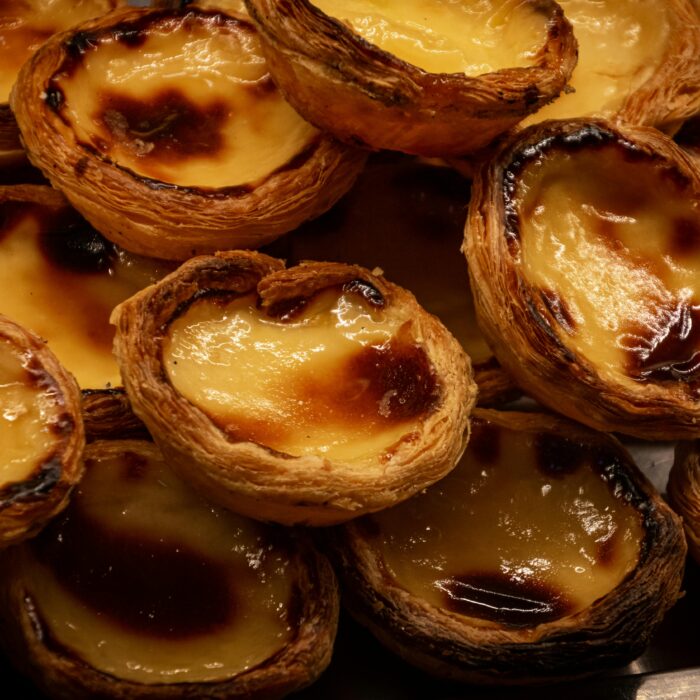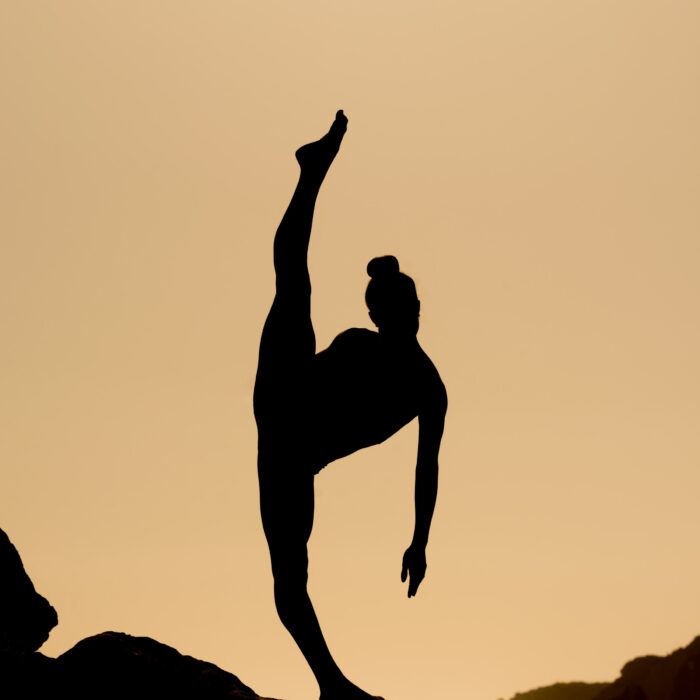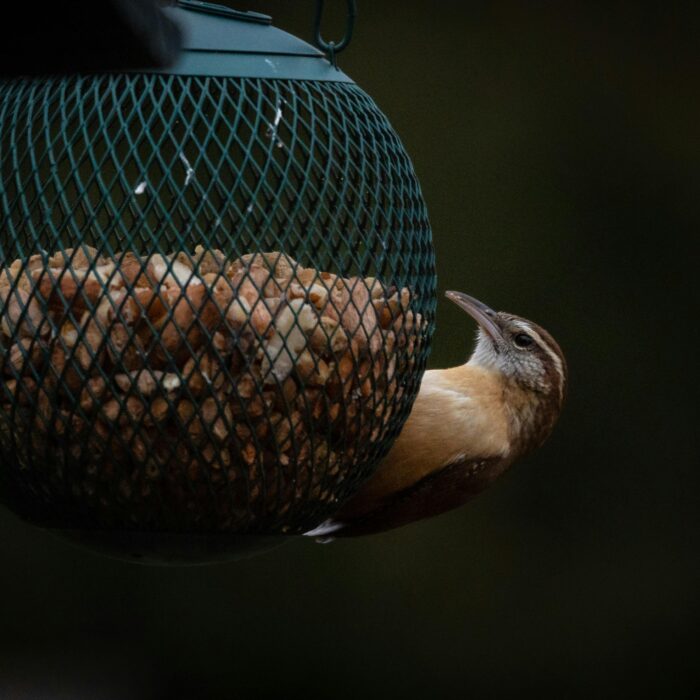You have no items in your cart. Want to get some nice things?
Go shopping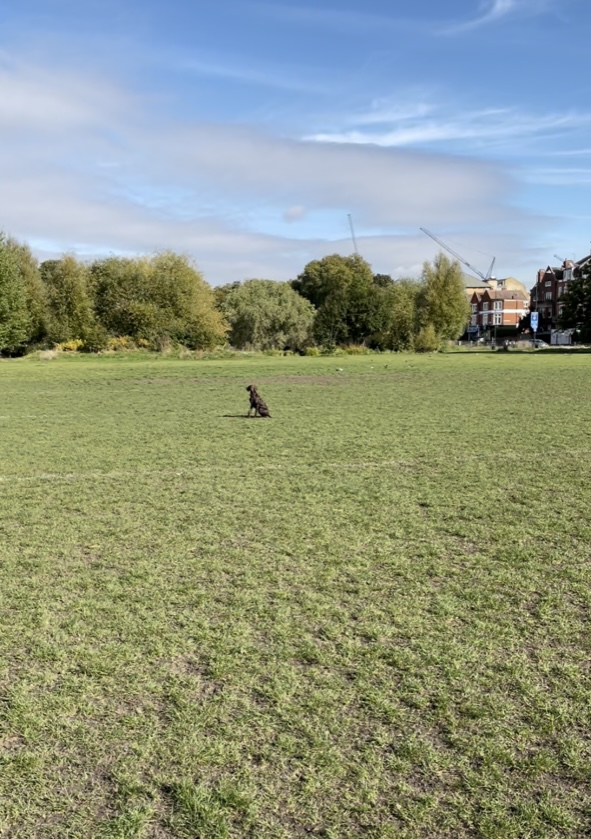
“If we want to study history, why don’t we just study chimpanzees? They are our history. When a pack of chimps kills another ape, they go mad with glee. Rip it apart. They lick the blood off the leaves. That’s us.”
Oscar was studying anthropology at Bristol University. At that moment, he was very much enamoured of primates. His dissertation, a few hundred words from completion, was entitled, The Monkey in the Mirror.
“Contrary to what used to be believed by naïve anthropologists, chimps are hideously violent creatures. But they are also cowards. Not an attractive combination. A group of chimps will typically only attack a lone chimp from a rival tribe if they outnumber him by 7-to-1. Less than that and they worry about losing an eye, or a finger. Or their testicles. Chimps rip at the testicles. Unseemly.”
They were barbecuing on Clapham Common that day. Six of them. Young men. With things in common. Three in their last year at university, and three recently graduated and moved to London, settling in Clapham and Balham, those great mustering points for the young and the affluent. Southwest London seemed soaked in possibility that day. They all felt it. All six of them. They had good lives ahead. Prosperous lives. The sun was shining hard, the grass warm on their flip-flopped feet. The Common was packed with people, people drinking beers and listening to music from portable radios, laughing and lying on their backs, squinting at the blue sky. Dogs gambled around, mostly cockapoos and spaniels, pampered, lockdown dogs, sniffing at empty packets of food, or poking their little pink tongues into the mouths of abandoned bottles, lashing the glass for the sweetness of cider. The smell of marijuana floated listlessly through the air, mingling with the smoky aroma of roasting meat.
Joshua was manning the BBQ. He always did. He poked at the steaks with a pronged fork. He considered himself skilled at barbecuing. When he was drunk, he would refer to himself as ‘the Pitmaster’. He would have loved to jack in his job as a trainee at a law firm, go into the restaurant trade, open an expensive BBQ restaurant, burning wood down to coal, laying great slabs of meat on a grill, slapping them down with a clap, relishing the curve of the thick bones, the ruby of the flesh, salting them, the fire licking up as he mopped the meat with sauce, as he raked the coals, sweat pouring down his forehead. He would go out to the farms himself to select the best cows, looking for the ones with bright eyes, listening to them in the crisp stillness of the rural morning, making sure their breathing wasn’t laboured, killing and cooking as God intended. Perhaps he would even hunt, with a bow, up in Scotland, or Dorchester. He had heard meat tasted better when you had killed it yourself.
But his parents would be livid if he left the Law. They might even take away his London living subsidy. Probably not, but it was a possibility. Without that, there would be no ski season, no trip to Thailand.
The idea of poverty frightened him. Of having to stay in the house because he couldn’t afford to go out. Or of walking down a supermarket isle and picking one sort of cheese over another simply because it was cheaper. Of actually wanting an object, wanting it badly, but not being able to have it. He had never felt that. Never in his life. But he feared it. There were no poor lawyers. Not as far as he knew. The other day, he had been watching a show on Netflix with his girlfriend about beautiful real estate agents selling enormous properties in California to actors and tech start-up founders and basketball players, and she’d remarked, without even turning to look at him, “If you make partner, I think we could live somewhere like that. Minus the swimming pool. It’s a bit cold for a pool in England…. We could heat it I suppose.”
He had trembled, right down in his heart.
“Steaks are ready,” he shouted dryly.
This tinny little portable BBQ was incapable of greatness, no matter who handled it. It wasn’t worthy of a Pitmaster. He had brought a heavy cast-iron skillet to fry some bacon, but it had nearly crushed the grill with its bulk. He had thrown the skillet aside in irritation. His skin itched. He took 5 steaks off the BBQ, medium-rare, laid them on a large platter. Pushed them away from him with the prongs, embarrassed by his work.
“Did you know,” Oscar said loudly, wandering over to the plate of steaks, transferring one to his own paper plate, “that the invention of cooking is the most pivotal moment in history? Why, you ask? Because cooking unleashed our brains. The human brain is 2.5% of our body mass, but consumes 25% of our calories… it is a greedy, brilliant organ. It demands tribute. To grow it, our ancestors needed more energy. Much, much more energy. And fire provides that… because cooked food is more calorific, easier to chew, easier to digest. Fire lets us feed the brain. It lets us grow it. The poor old gorilla, that amiable big-biceped beast of the jungle, spends 8 hours a day chowing down on starchy, raw plants, and the rest of the time digesting them. There aren’t enough hours in the day for him to feed a bigger brain, or do much else apart from eat. The average human however, spends an hour a day chewing… that’s all he needs with cooked food. Less time eating, more time being civilised. And the rest, to use that awful phrase, is history.” Oscar gestured around him, at the affluent young people flopped out on the grass, at the elegant Victorian houses that surrounded the Common, and, in the far distance, at the pinnacle of the Shard, gleaming surgically in the sunlight.
“Bore us later Oscar. We aren’t monkeys anymore,” Freddie shouted. “I’m not even sure I believe in evolution anyway.” He punted a rugby ball high into the air, pointing down the Common towards where a group of girls lay on beach towels, a bottle of pink prosecco open beside them, tanning themselves in bikini tops and shorts. “There isn’t time for it. Besides, I don’t think you’d survive a day in the jungle, not unless it had wifi and oat milk lattes on tap.” He chased the arc of the ball through the brilliant blue sky.
Every day that summer, Freddie had made a point of taking his top off on the Common. The others mocked him for it, but he had spent most of his last year at university lifting weights in the gym and drinking protein shakes, naming each of his abdominal muscles as they emerged, taut and block-like, slightly misaligned, from his stomach. He named them after his favourite athletes: Federer, Kane, Nadal, Stokes, Sterling and – the last to emerge – Itoje. He would run his fingers over them in front of the mirror, flex his chest, the bathroom door locked, adoring the body he had built. He had worked harder on this body than he had worked on anything else in his life. Far harder. Over the Christmas holidays, his father had rolled his eyes when he caught Freddie blending protein shakes in the sink, saying, “If you’d put as much effort into growing your brain as you have your biceps, you might have got onto that graduate programme at Barclays.” But Freddie didn’t care. He had eschewed pints of real ale on account of this body. Stopped eating McDonalds for it. He would survive in the jungle.
Freddie had a strong leg on him, and the ball sailed over the group of girls. He ran past them, and as he did so he watched them out of the corner of his eye, waiting to see if they noticed his body. Surely, they would notice. He often said to his friends, “A girl can feign as much sophistication as she wants, but there’s nothing in the world she prefers to a six pack and a set of guns. Except perhaps a fast car, and a bottle of Moet in a club.”
As he passed close by he could hear the girls laughing, hear their plummy intonations, the affluence on the tongue. He had known girls like this all his life. Just as he almost gave up looking, one of them glanced up at him, met his eye, smiled slightly, then looked back at her friends. She didn’t immediately re-enter the flow of their conversation. She lived on its fringes for a moment, there but separate, and she stayed smiling, and Freddie knew that a moment between the two of them had been cordoned off, that through her lingering smile she wanted him to know. His heart leapt.
He picked the ball up out of the grass, knowing he was being watched this time, keen to display himself, the vigour of his limbs. He hoofed it back towards his own group, putting everything he had into it. But the ball sliced off the side of his foot, veered wildly up the Common, a rare athletic error. It landed in the path of five men. They were walking up towards the road. Freddie hadn’t noticed them before. They were moving noisily, no modulation to their voices, occasionally shouting and clapping each other on the back. Freddie stopped and considered them for a moment, his arms hanging loose at his sides. They looked to be in their twenties, possibly their thirties. They were speaking in the deracinated cockney tones of Essex or Kent. Three of them wore England football tops (there was a World Cup qualifier on later that afternoon), and another wore a t-shirt with ‘Leave Means Leave’ printed on it. He had a sleeve of tattoos down his left arm. They all had open cans of lager in their hands, and two lugged Tesco’s carrier bags that bulged with six packs of beer. They looked, and sounded, out of place in Clapham that afternoon.
The ball trickled towards them, and Freddie waved in their direction, shouted uncertainly, “Over here mate.” One of them, the one in the Leave Means Leave t-shirt, his stomach hanging heavily over his shorts, his face flushed and burnt, bent down as if to pick the ball up, grinning, but then theatrically let it roll by him, through his legs. His friends laughed loudly.
“Dick,” Freddie murmured, too quietly to be audible, and trotted past them to grab the ball. He peeped over at the girls. They were watching, prosecco glasses in their hands, their necks craned elegantly. Had they seen? Was he diminished? His heart beat harder. He carried the ball back to his friends, and, loudly this time, said to Oscar: “Well there’s no way that guy only chews food for an hour a day. Fat bastard.”
The men stopped abruptly in their tracks, the laughter all wrung out of them. The fat one swivelled.
“What the fuck did you say?”
Freddie’s heart lurched. What had he done? He coughed and took another step towards his friends.
“What the fuck did you just say?”
Freddie looked away, pretending not to realise the challenge was directed at him. He squinted into the grass, as if he’d dropped something small there.
The fat one walked towards him, moving at an unnatural, unnerving pace, his friends following, their faces puckered with anger, their strides stiff with energy. They moved wordlessly, synchronised, strung together by an impulse. Freddie’s legs went lead-heavy. He felt immobile. He had done so many squats in the gym, but his legs felt useless. He couldn’t believe it was happening. Conflict. Right there in the sunlight, in the park. Violence on the common. He was seconds away from it.
Then the fat one was in front of him, his breath smelling sweetly of beer, his lower lip jutting forwards like a pike, his eyes light and blue, blazing with raw fury. He was younger than Freddie had thought. Barely older than he was. The man’s friends fanned out behind him.
“Are you deaf? What the fuck did you just say?” And he jabbed Freddie on his bare chest with two fingers.
Freddie felt dizzy. He couldn’t anchor himself to anything. He had a sudden morbid terror of being struck in the head, or slapped, of being humiliated forever. Why hadn’t he been prepared for a moment like this? So much schooling, so much money spent on his education, and he’d never even been prepared for something useful like this?
He tried to look puzzled. “Nothing,” he muttered stiffly. “I wasn’t even talking about you guys.”
“You wasn’t talking about us guys?”
“No,” he replied, shaking his head as if the suggestion was absurd.
The fat man considered him, looked him up and down, at his stomach, lined with Feder, Nadal. With Itoje.
“You think you’re a big man with your top off. Don’t you? A big man? Huh?”
Freddie stood there, mute. He almost shook his head. He almost declared out loud that he didn’t believe himself to be a big man, that he was in fact a small man. As small as was necessary to avoid conflict. He almost did that. But not quite. Instead he kept silent. His friends didn’t move. Not one of them, not an inch.
“All those muscles and you can’t do nothing with them.”
The moment hung in the balance. Then the fat man said, “Posh twats,” and laughed loudly. “Let’s go.” He turned, and his friends loosened their stances, smirking again, shaking their heads. One spat on the floor. “Twats.” They moved off up the Common. The violence dissolved in the summer’s air.
The afternoon drifted away. Freddie put his t-shirt back on, slipped it on when no one was looking. He loathed his body. His stomach sickened him. It’s impotence. Its immobility in the moment.
The six of them drank more. A lot more. They didn’t say much. Something hung over them. The bottles piled up on the grass. The day cooled. The girls left. They didn’t look over at Freddie as they strolled up towards Balham, their towels and empty prosecco bottles packed away in a picnic basket, their laughter floating tauntingly across the grass. Freddie watched them go. In his heart, he hated them. For what they had witnessed. He hated them more than he hated the fat man. The way they had watched. Languid. Their roles as the arbiters of men, the selectors of genes. He would do wicked things for them. He took his knife and pushed it into the ground, up to the hilt. He bit his lip, crushed it until he could taste a little blood. He was good with pain. Why had he been so afraid when he was good with pain?
“Some of the girls from uni are going to the pub tonight,” Oscar said. “Samantha’s birthday I think. We should join.”
There was a muted murmur of assent. They were all sat tightly now, in a circle. Few gaps between them. Freddie was holding a bottle of cider, ice-cold, moisture running freely down the side. He was squeezing it so hard that for a second, he worried the glass might shatter, impaling his palms.
“Those scumbags,” he said suddenly, shaking his head, biting his lip again. “Those thick, fucking Neanderthals.”
“Leave it,” Joshua said. “Forget about it.”
Freddie remembered the eyes. The jutting lip. The act of submission. He couldn’t leave it. It bit at him, gnawed.
“They were scum to be fair,” Oscar said. “Did you see he had a leave means leave t-shirt? The one who pushed you. The fat one. You know what that is, don’t you? That’s Brexit. I think there was a pro-Brexit march down at Westminster this morning… they must have been at that.”
“Then off to scream Engerland at the top of their lungs.”
“Scum,” one of the others said, and crushed a beer can in his hand, tossed it.
“It’s people like that who have screwed this country,” Oscar said. “And we have to live with it.”
“I’m seeing if I can get an Irish passport.”
“What were they doing in Clapham anyway?”
There was a pause. Then Freddie said slowly, heavily: “Why did no one help me?”
The others were silent. They glanced at each other.
“Didn’t know you needed help,” Oscar replied. “Besides, I’m strictly non-violent.”
“You all just… sat there.”
“I honestly couldn’t really hear what was going on,” Joshua said, sweating, avoiding Freddie’s eyes. “It’s so loud out here. I didn’t realise he was having a go. If I had, I would have done something.” He took some burgers out of the cold bag, his hand shaking, laying them on the grass in their plastic wraps so they could defrost, so that they would cook evenly.
Freddie looked up at them. At the five faces. His tribe. They looked at the floor. His heart throbbed with shame.
–
Dusk came down on the Common. Most of the groups had left now, retreated to the pubs. It was colder. The Common felt desolate. The England game had finished. The World Cup qualifier. England had won. The six of them had heard the cheers, the explosions of sound bulging warm against the pub windows, rattling the glass. The rugby ball was gone. Freddie had smashed it into the darkness. No one had said anything.
They had eaten their burgers. Which Joshua had burnt badly. Now they sat round the glow of the BBQ. They watched the smouldering coals. They were quiet. Sour. Angry. Joshua watched a piece of coal split into two, sparks spitting. He felt like he was witnessing the birth of the universe, the embryo of life. He suddenly realised he would quit. Tomorrow he would quit the law. Become a Pitmaster. He didn’t care what his parents thought. Didn’t care if his girlfriend wanted a swimming pool. She could pay for it herself, heating and all. He would launch the ship, tread the path of kings, strike out for his dreams. He looked at the others. He didn’t want to tell them. Not tonight. There was poison in the air. This was no night to float dreams. Wind rustled the grass. Joshua looked across the BBQ at Freddie. His face was dark, a shiver of fire light running across it. His eyes looked wolfish.
“When are we going to Samantha’s then?” Oscar asked, morosely.
“We aren’t,” Freddie replied. “I always hated that girl. Stupid, shallow bitch.”
There was a murmur of assent. Someone lit a cigarette, its tip glowing in the dark.
Then, from the south side of the Common, a figure began to appear in the gloom. He moved heavily, swaying, unsteady on his feet. Joshua heard the movement. Looked up. He squinted. It was the man. Or boy. The fat one, the one in the leave means leave t-shirt. He was singing softly to himself. His voice was quiet, but strangely melodic, gentle. He was alone.
Joshua looked over at Freddie. He hadn’t noticed yet. Joshua prayed in his heart that the man would change directions, would lurch off unseen into the night, that their lives would divert and never cross again. But he kept moving towards them. Freddie was scratching at his back with a stick. Then suddenly, he stopped. Sensed something. In his memories of the moment afterwards, Joshua could swear that Freddie’s ears physically pricked up, that they became longer and thinner for a moment. His head swivelled on a plane, mechanically, towards the sound, violent and unnatural. His body went taut. Joshua felt sick.
Freddie peeled himself off the floor. He stood in the firelight, his shoulders clenched and hunched over, his fingers curled like claws. “It’s him,” he whispered, his voice cold. Then he shouted: “Hey! Hey you fat bastard.”
The unsteady figure stopped walking. Stopped singing. He peered through the murk at them. He must have forgotten about them, all those hours ago, must have assumed the Common had emptied with the night.
“Not you again,” he slurred, defiantly. “Twats.” And started ambling towards them, but slowly this time, almost playfully.
Freddie picked up an empty can of beer, and launched it at him. It bounced harmlessly off the man’s forehead, making a little pinging sound. Freddie ran forward, and swung a fist at the man. It hit him near his jaw, and the man grunted heavily, and swung back, missing. Freddie launched himself at the man’s waist, tackling him to the ground. They rolled near the BBQ. Freddie was on top of him, his left hand trying to pin the man’s face to the grass, whilst with his right he was trying to hit him.
Suddenly, Oscar ran over to the twisting tangle, and booted the man in the body, three times, yelping in pain the third time when he clipped the ground hard as he swung his leg, twisting the ligaments in his knee as he did so. One of the others ran over too, and hopped from foot to foot, as if they were on fire, looking for an opportunity to land a clean kick, to the ribs, the stomach, perhaps the skull, lifting his leg high in preparation.
The man squirmed out, got back to his feet. There was blood running freely from his nose. They were all in a circle around him now, enclosing him. Someone threw their lit cigarette at him. Someone shoved him from behind, and he tumbled towards Oscar, who kicked out wildly at him with his injured leg, the pain drowned by something deeper. Someone else stamped at his knee. The man squealed. One of the others hit him hard in the temple with his forearm, and the man’s legs stiffened up. He was hurt properly now. The circle closed a little. The man swung blindly at the air, panting. “It’s fine,” he said, breathing hard. “I’m leaving. I’m going home.” There was blood running from his lip, smeared on his chin. Someone picked up a bottle.
Freddie stepped forward and shoved the man. He reeled off towards Joshua.
Joshua had no recollection of when he had picked up the skillet. But he must have done. He held it in his right hand. The inert mass that had crushed his flimsy little BBQ like an eggshell. As the man stumbled towards him, Joshua stepped back, instinctively, and swung the skillet at him, almost like a tennis forehand stroke. He had played tennis as a child. His parents had paid for lessons. His girlfriend adored tennis, coveted seats at Wimbledon, one day, when he was a partner.
The skillet cracked the man in the side of the head. He seemed to stand suspended for a moment, held aloft by shock, his eyes blue and childlike, confused. Then he slumped forwards, face first into the ground, a lash of his blood across the leaves.
They all stood around the body, their chests heaving, their breathing ragged. In the distance, a siren became louder, the blue light of an approaching police car swinging eerily across the Common. Freddie ran his hand over his stomach, across Federer and Kane. Across Itoje. It suddenly occurred to Oscar that he would never finish writing The Monkey in the Mirror. The Pitmaster held the murder weapon, his knuckles white, nausea rising fast in his stomach, tears in his eyes.
The door of a police car slammed shut on the edge of the Common. There were raised voices blurred in the distance. And the six of them stood there together, safe in numbers, the victorious tribe of Clapham.
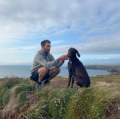
Benjamin Wolfe
Benjamin is a writer living in London. He has published short stories in Open Pen, Agenda, Sarasvati, The New Writer, Between These Shores (his story due for 2022 publication in this magazine has been nominated for next year's Pushcart Prize), Weyfarers, and others.


